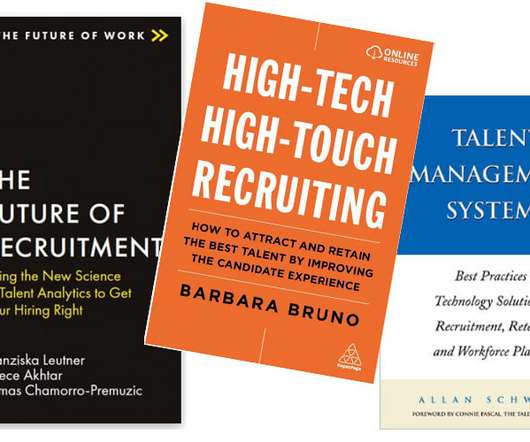Gen Z Recruiting Trends: How to Effectively Engage and Hire the Next Generation of Workers
Recruiting Daily
MAY 5, 2022
This contrasts sharply with compensation and work-life balance concerns of new job seekers just half a decade ago. As younger children, many watched their parents and older siblings experience one financial setback after another while struggling through The Great Recession in 2007, then record-high unemployment rates in 2020.















Let's personalize your content